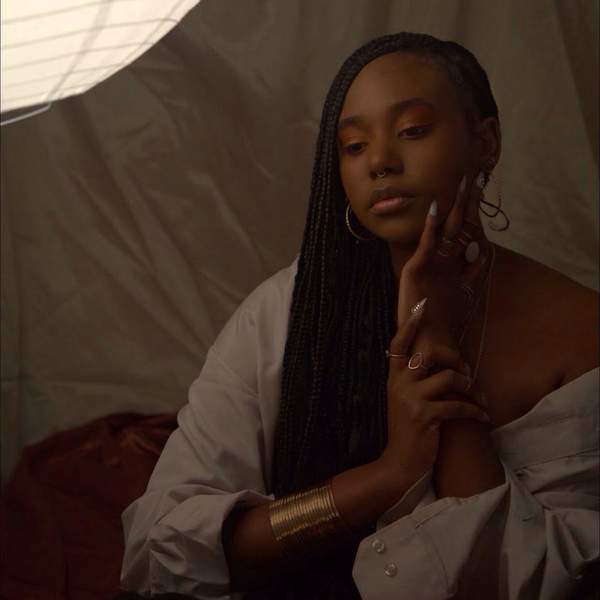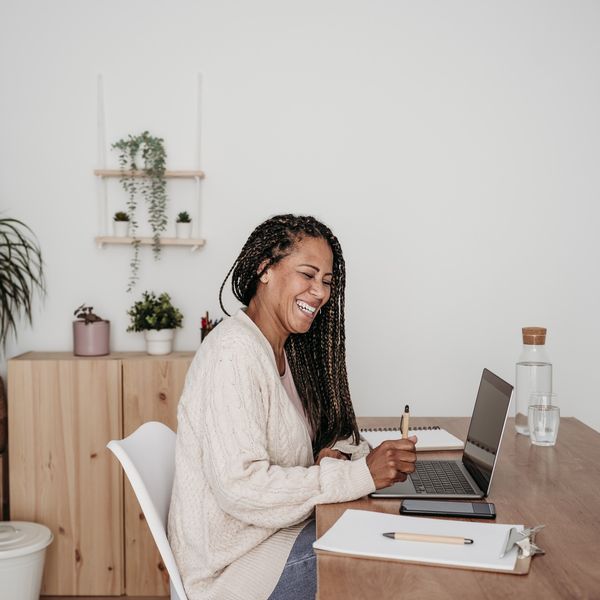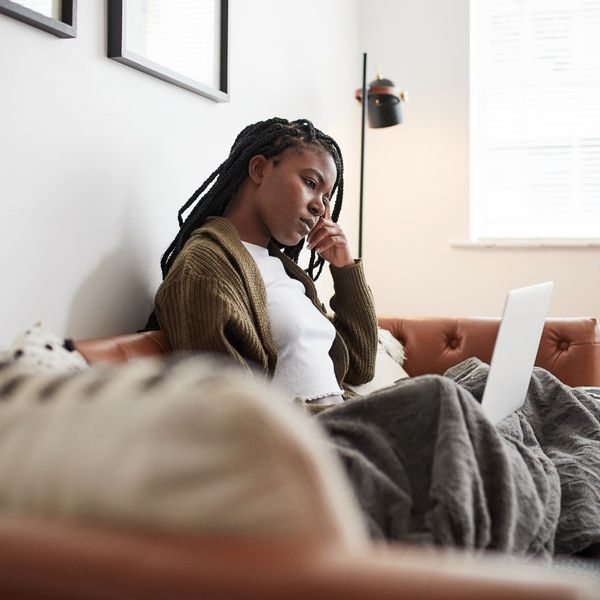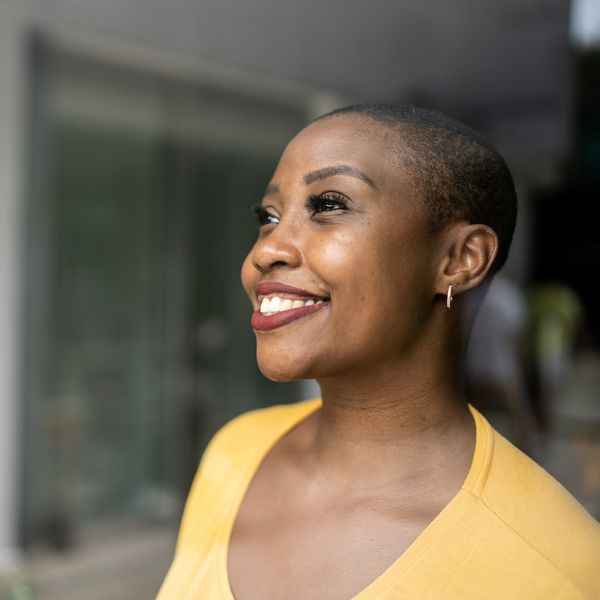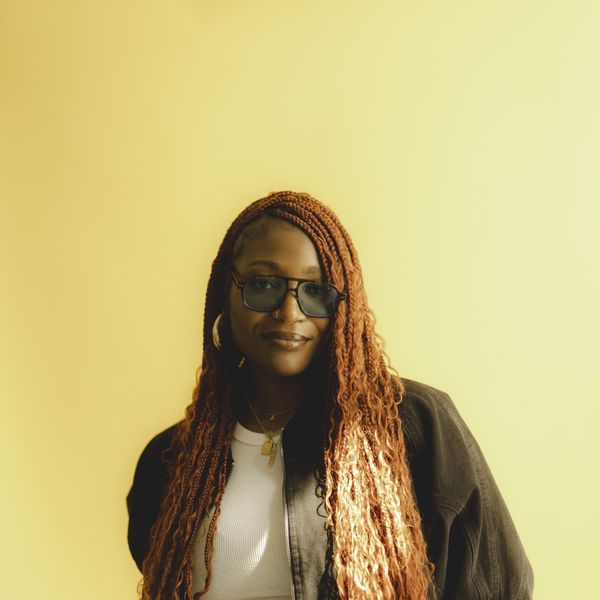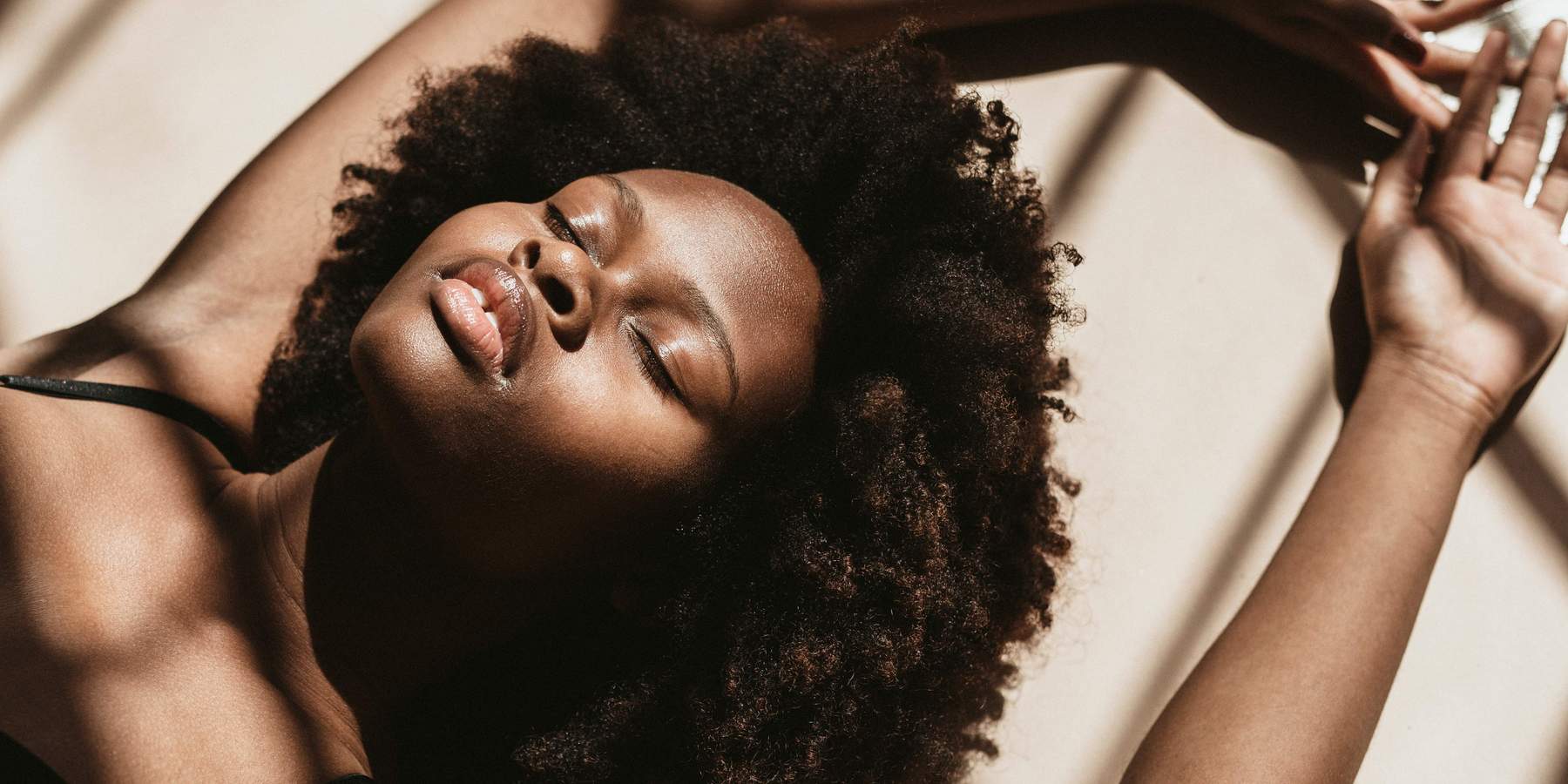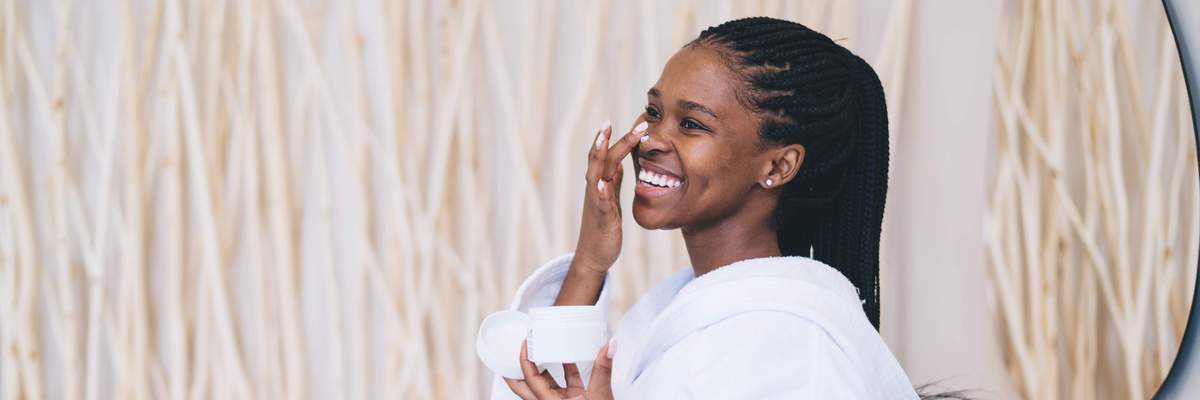While there are women on the frontlines of both the second wave of COVID-19 and protesting, these times are impacting more than just the medical and social impact fields. Mental health affects people young, old, tall, short, Black, white, or Indigenous. Placing our minds first is easier said than done, but it is imperative to remember that we cannot function physically, emotionally, or mentally without our brains.
No matter your work in the medical field, photography, styling, or modeling, these times are rough for any Black woman and may be enough to knock anyone to their knees, but these women stand tall and firm while being emotionally and mentally aligned with themselves first.
xoNecole caught up with a few women spread throughout various lines of occupations about managing and prioritizing their mental health, how recent events in Black America have impacted their careers, and the state of their mental health as a result.
Alysha P., Cinematographer/Producer and 1/5 of 'Black Girl Podcast'
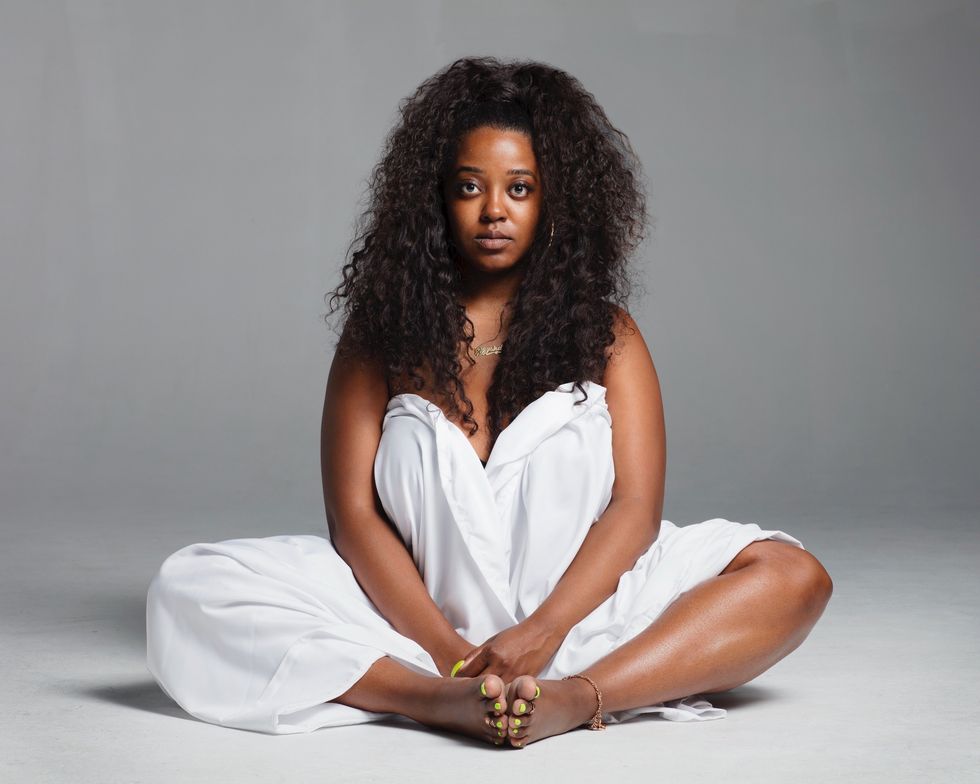
Courtesy of Alysha P.
How has your line of work been impacted by recent events in Black America?
All companies are taking this time to do their due diligence and work from the inside out. I think that's extremely commendable if the intentions are pure. Very real and difficult conversations are being had across all industries. I am personally showing up in this moment by using my voice to advocate for us. My goal is to make sure we are heard, seen, respected and understood on all fronts.
How has your mental health been impacted in relation to how recent events have affected your occupation/studies?
When the pandemic first broke loose, I had extreme anxiety. I had no idea it was anxiety until my therapist called it out in one of my sessions. In that moment, I knew I had to lean into the healing. I had to become still, patient and very compassionate with myself. I had to give myself grace. Once I was able to identify and contain the stress and anxiousness, a beautiful awakening started to bloom. I began to love me. I never imagined that I would find such peace and self-awareness healing through a time of absolute chaos and pain within the Black community. This peace has allowed me to become more efficient with all of the work that I do. My confidence is more apparent. I'm fearlessly advocating for what I believe in. My creative juices are overflowing. And quite frankly, I'm just getting things done.
I'm very grateful the world became still. It's allowed me to hear the noise and turn off the levels that no longer serve me. What I thought would break me down during this revolution is actually fueling my fire.
"I had to lean into the healing. I had to become still, patient and very compassionate with myself. I had to give myself grace. Once I was able to identify and contain the stress and anxiousness, a beautiful awakening started to bloom. I began to love me. I never imagined that I would find such peace and self-awareness healing through a time of absolute chaos and pain within the Black community."
How do you manage your mental health?
I manage my mental health by continuing to make sure I carve out 45 minutes a week to show up for myself via my sessions. Regardless of where I am or how I'm feeling, I make sure that I am prepared and ready for my session. I also do the work. A therapist doesn't magically heal you. You have to be willing to do the work. Whether it's journaling, taking time to process my session, cry, ride my bike, taking a beat or creating some content, I have made it my business to become more intentional with my time, space and those I let into my world. That's all part of healing. I also prioritize my needs first. That's new to me, something I've never really done before. I've learned how to set boundaries throughout every avenue of my life. It's literally changed me for the better. Protecting my peace, surrounding myself with people that genuinely love me and pouring love back into me that I once poured into others are the keys to my mental wellness journey.
Bre Johnson, Freelance Photographer for Bre Johnson Photography
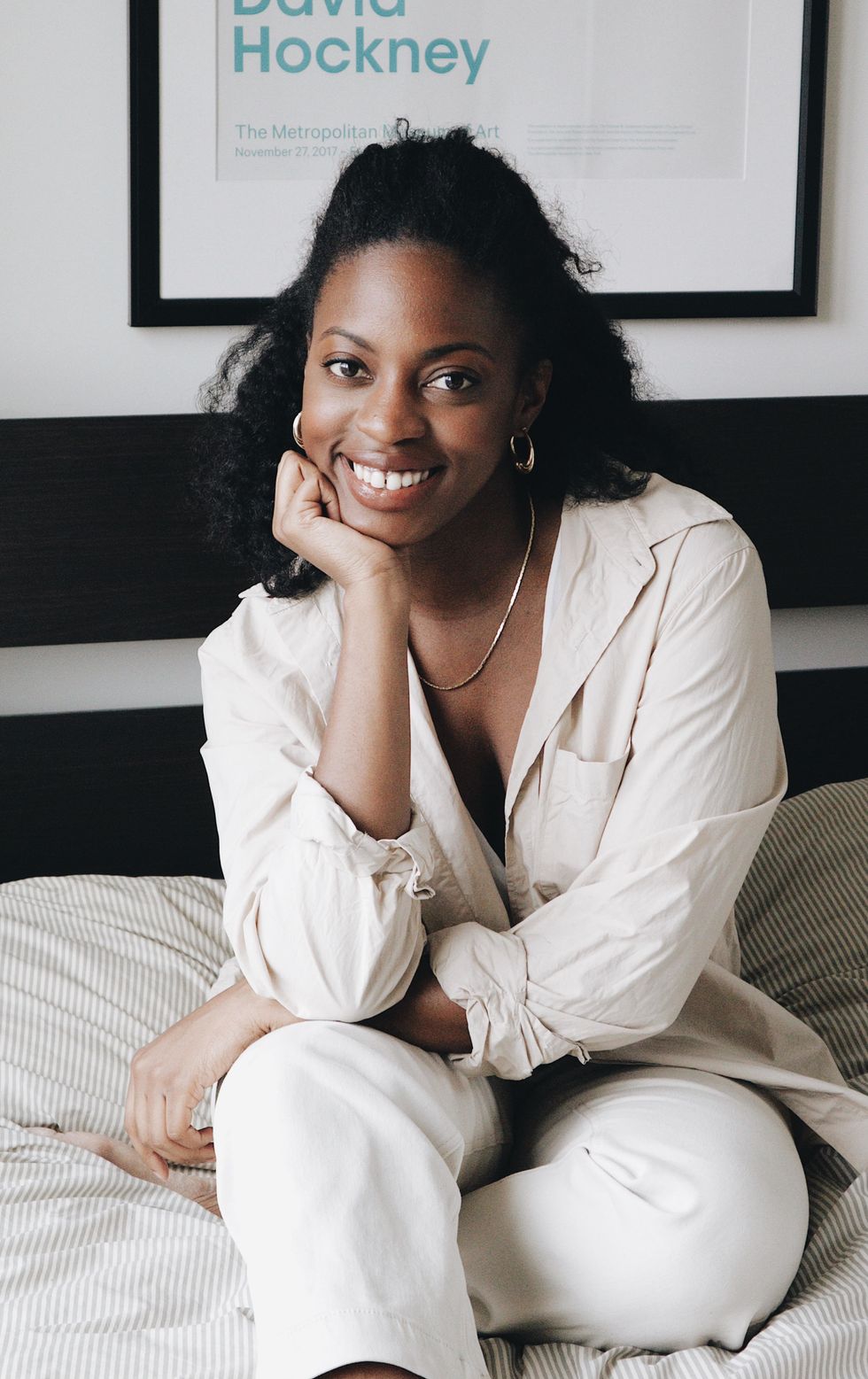
Courtesy of Bre Johnson
How has your line of work been impacted by recent events in Black America?
As of now, I've been devoting my time to my photography passion and my line of work has been impacted positively by the recent events in America. Now more than ever, Black photographers are being sought after for their vision and voice and this is a perfect time for me to be active in the photography world and put my work out into the universe.
How has your mental health been impacted in relation to how recent events have affected your occupation/studies?
At the start of the pandemic my mental health was spiraling. I found myself to be hopeless because I didn't have steady income coming in and my photography plans seemed pointless with social distancing. However, after talking with family/friends and listening to my daily affirmations, I bounced back and my mental health is more balanced than before. I now understand that I have full support from people who want to see me succeed and that pushes me to continue to capture our stories and emotions despite recent events.
How do you manage your mental health?
The best methods for me to manage my mental health is burning Palo Santo and reciting positive affirmations, listening to rags to riches stories on various podcast platforms, journaling my thoughts, a calming bath, burning candles, and just breathing, reminding myself that all is OK.
Tiyanna Washington, LMSW, Founder and CEO of Tspeaksnyc, LLC
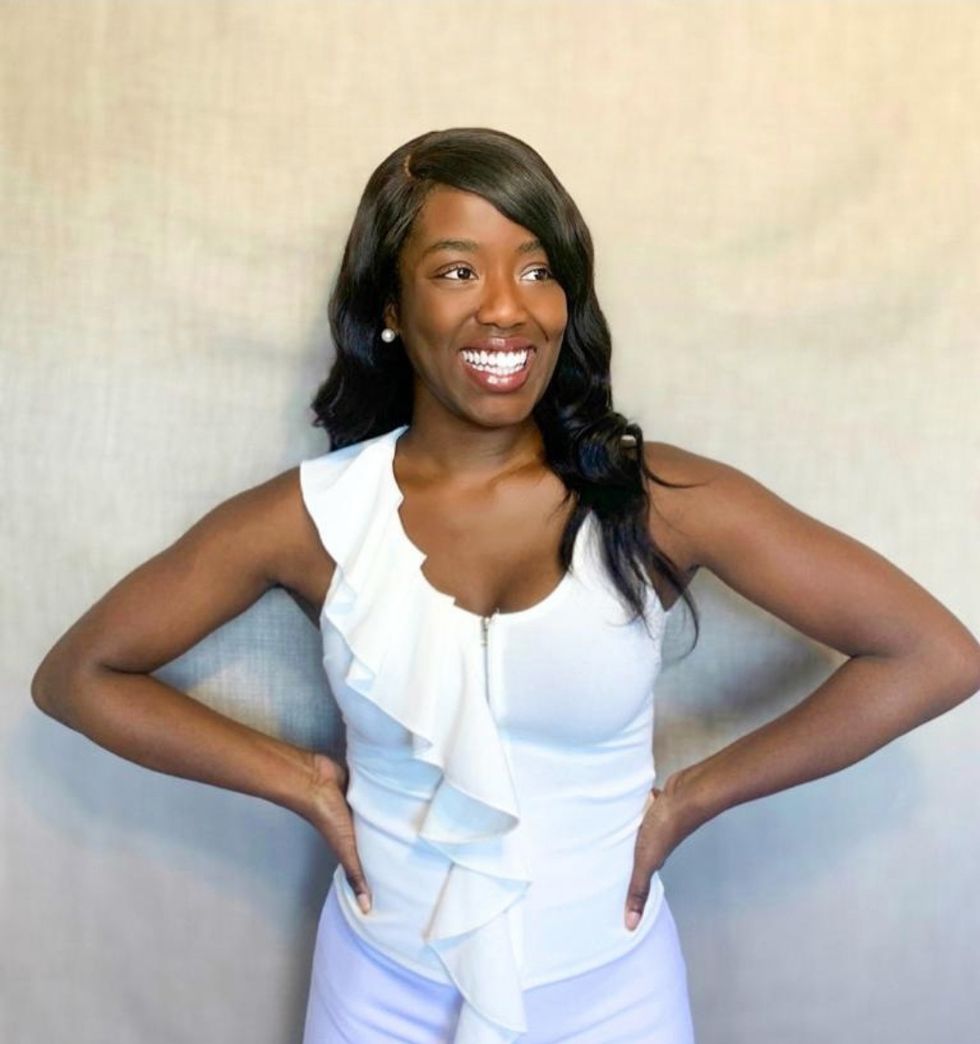
Courtesy of Tiyanna Washington
How has your line of work been impacted by recent events in Black America?
I think now more than ever it's being recognized that there is a need for more therapists of color. I've had a lot more clients reaching out specifically seeking a culturally responsive mental health professional that can understand the racialized traumas that exist in communities of color. I've seen an increase of anxiety-based symptoms with my clients, [including] rapid heartbeat, trouble sleeping at night, persistent feelings of sadness, irritability, [and] headaches that have been directly tied to recent news and media coverage of Black men being killed and the overall state of being Black in America. Folks are actively looking for and seeking ways to process, manage and cope with their thoughts and feelings as it pertains to the profound impacts of racism we are collectively experiencing.
How has your mental health been impacted in relation to how recent events have affected your occupation/studies?
I definitely find myself in a space of appreciating solitude a lot more. With recent events, for many of us, there's this need to want to be informed but sometimes it can feel overwhelming. There have been days when that overwhelming feeling has had a direct impact on my overall mood. [There's] this interesting parallel experience of witnessing what my clients are going through and very much being able to relate because I, too, am experiencing those similar feelings.
"With recent events, for many of us, there's this need to want to be informed but sometimes it can feel overwhelming. There have been days when that overwhelming feeling has had a direct impact on my overall mood. [There's] this interesting parallel experience of witnessing what my clients are going through and very much being able to relate because I, too, am experiencing those similar feelings."
How do you manage your mental health?
As a mental health professional, there's no textbook or manual that teaches you how to hold space for others during a global pandemic and a civil rights movement at the same time. In particular, for therapists of color, we are holding space for others in ways folks could not imagine. For me, finding quiet time during my day helps me to decompress. I'll silence my phone, won't schedule any sessions during that block of time and just allow myself to be. Meditation and music helps to lift my mood tremendously, so I am very intentional about setting aside time during my day to enjoy those very things that bring me peace and comfort.
Niani B., Hair Stylist and Founder of Beaute Anthologie
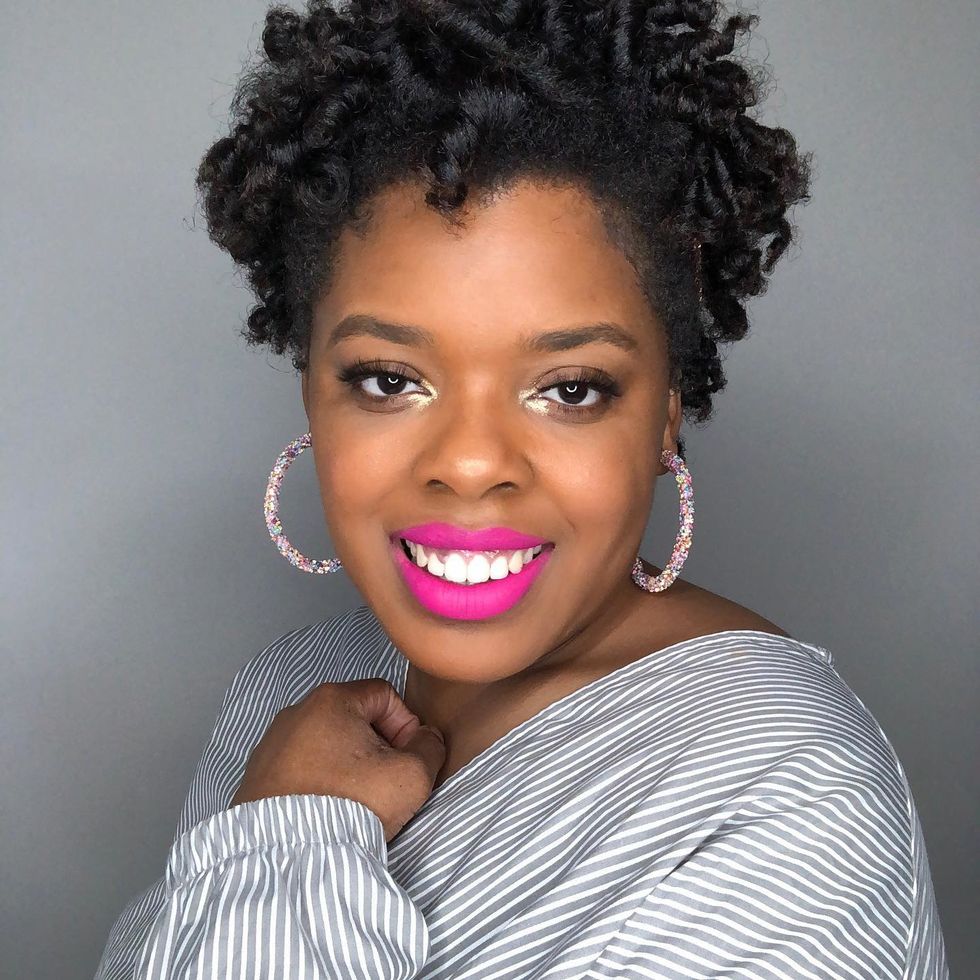
Courtesy of Niani B.
How has your line of work been impacted by recent events in Black America?
Conversations about racism in America have brought attention to how Black hair stylists in the industry are undervalued and overlooked. Black hair stylists have to work twice as hard for opportunities that reflect their skill level, even though there is a demand in the industry.
How has your mental health been impacted in relation to how recent events have affected your occupation/studies?
It can be discouraging knowing that only a handful of Black hair stylists make it to where I want to be in the industry and this can sometimes be depressing, especially when I start to feel like all of my hard work still might not be enough to help me reach my goals - not because I'm not deserving. This can sometimes make me feel helpless.
How do you manage your mental health?
I usually do things that make me feel happy, self-care, which helps to keep me from feeling consumed by the negative impact racism has on my people around the world. Self-care for me does not look like a nail appointment [or] a massage, but instead [like] dance and music. If I'm feeling down, I turn on my favorite reggae [or] Afrobeat playlist and jam it out. I am also looking into finding a Black therapist to help me increase my ability to maintain my mental health, especially in today's climate.
Kaya Nova, Singer-songwriter, Founder of GROW/N, and Creative Consultant
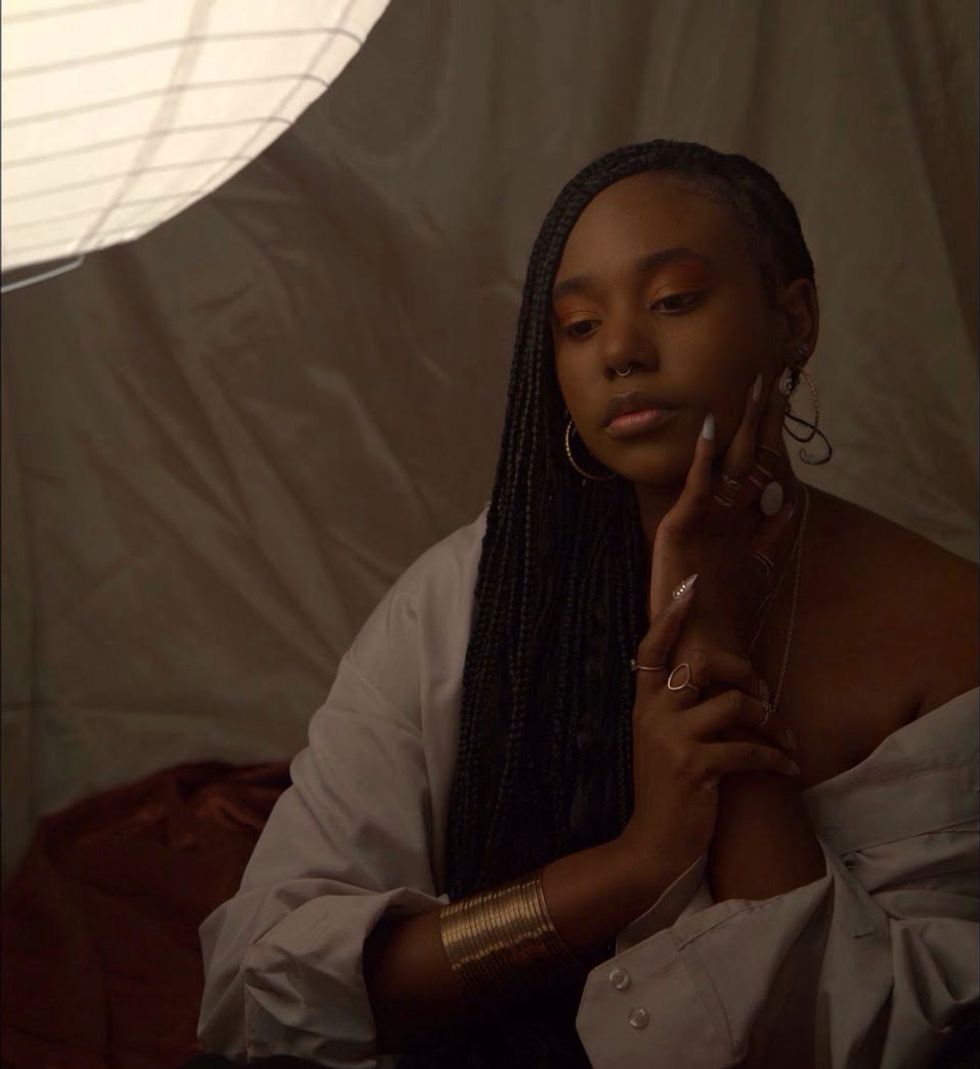
Courtesy of Kaya Nova
How has your line of work as a singer, songwriter and creative been impacted by recent events in Black America?
It made me realize how important it is to continue to create space for other Black creatives to feel empowered by their own voices and share them. It also made me feel more responsible in the work that I do. I've always taken what I do seriously, but even more so I recognize how artists are servers of the community. It is our job to take these painful stories and amplify, process, and somehow create peace around them for our people. It's our job sometimes to communicate what is happening in the world to those who may not understand. It's a heavy job that I don't take lightly. And now I walk in that even more.
How has your mental health been impacted in relation to how recent events have affected your occupation/studies?
I honestly am so used to dealing with so many things as a multidisciplinary in the industry, but I will say this is the first time I've felt true sadness and grief around what's happening. We've been hearing these stories for years now, and I don't think I ever knew how to make emotional space to feel them—so I went numb. But recently, I found grief taking over my body, I stepped away from work, I had to address some of the white clients I work with, there were days I cried, or didn't do anything at all. It took me a while to figure out how I can truly be helpful, but when I did it helped me reclaim some of my peace.
"I've always taken what I do seriously, but even more so I recognize how artists are servers of the community. It is our job to take these painful stories and amplify, process, and somehow create peace around them for our people. It's our job sometimes to communicate what is happening in the world to those who may not understand. It's a heavy job that I don't take lightly. And now I walk in that even more."
How do you manage your mental health?
I haven't shared this publicly yet, but I started anxiety medication about a month ago. One unique thing about anxiety is how it lingers in your body, and triggers other body trauma from your childhood and teen hood. There's things your mind can process that your body hasn't let go of, and I found myself feeling mentally "OK" but struggling with an anxious body—racing heart, body tension, agitation.
And now many of us find ourselves dealing with triggers both in our living situations with social distancing, and in our communities with violent racism, so anxiety is a very big issue. For my own coping, I take medication and also practice a daily routine, exercise, laugh, cry, unplug from social media when I need to, rely on my support system and be as gentle with me as I can while I continue to heal.
Elyse M. Love, MD, Dermatologist at Spring Street Dermatology
How has your line of work been impacted by recent events in Black America?
My work has become more fulfilling in the current climate. My clinic is full of Black faces, and we are all dealing with so much emotional trauma that we have buried. I feel lucky to be able to create a safe place for Black wellness, Black pride, and Black beauty. The ability to help Black people feel beautiful in this current climate feels a little like a superpower, mostly in that it recharges me to continue to read, listen, and speak.
How has your mental health been impacted in relation to how recent events have affected your occupation/studies?
I am exhausted. I am in the early phase of building my career. When NYC Pause happened, I felt like I was running at full speed professionally and then hit a wall. In the coming weeks, as the realization of how COVID disproportionately affects minority communities became obvious, I was overwhelmed with anxiety for my family's safety and sorrow for my community. As I began to recover from that and began to create new ambitions for 2020, Ahmaud Arbery, Amy Cooper, and George Floyd hit the nation in a wave that has not stopped. I am doing my job and I am doing it well, but I am doing no more than that. I see my white colleagues who are building, and I'm honestly too tired to dream right now.
How do you manage your mental health?
It has been important for me to readjust my expectations for myself during this time. I have also given myself permission to rest and take a break. I know that on my off days, someone will step in to fill that spot, and I will do the same when it's someone else's time to rest. If I spend the day on the couch doing nothing, I say to myself "I needed that" instead of "I wasted that time."
J’na Jefferson - Music/Culture Writer and Staff Writer, The Root
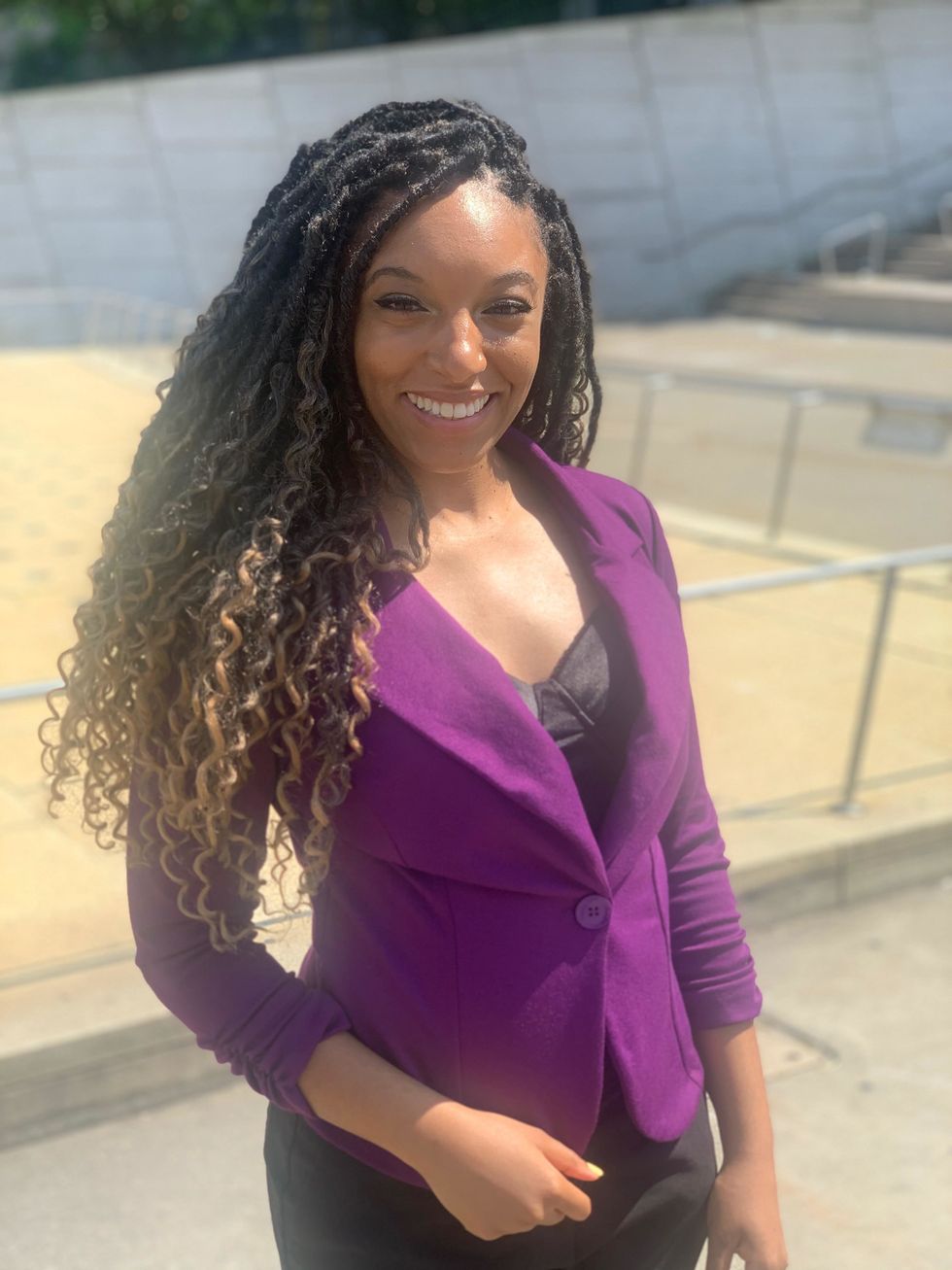
Courtesy of J'na Jefferson
How has your line of work been impacted by recent events in Black America?
Considering The Root is all Black everything, I unfortunately can't get away from some of the more trying events in our community. Even though my beat is primarily entertainment and culture, it's all aligned, and sometimes, I cover hard news as well, which involves some pretty devastating reports. For the most part, not much has changed in my day-to-day operations, but the content itself has gotten a lot more serious. Because of that, our response to reporting and aggregating the content has to be razor sharp, clean, and well-thought, since we're getting more traffic to the site.
How has your mental health been impacted in relation to how recent events have affected your occupation/studies?
I'm a heavy empath, so my feelings regarding certain situations and topics are often manifested in my physical and emotional responses. For example, I was upset about Kobe and Gianna Bryant's death for at least three days, and couldn't sleep because of it. A similar phenomenon has occurred with the stories about Black lives being taken by police, even with all of the Black Lives Matter protests happening throughout the country. I've had trouble sleeping and am triggered by the news a lot, which as a news journalist, is a different kind of agony. Actually, a few weeks ago, I realized I had enough, and took the entire week off of work to unwind and get my mental well-being back in order. I went down to my home state of New Jersey, went swimming, saw a few friends and just relaxed. I rarely opened my computer or social media because I knew the bulk of my stress was from what I was seeing on the news and what I had to report on.
"I've had trouble sleeping and am triggered by the news a lot, which as a news journalist, is a different kind of agony. A few weeks ago, I realized I had enough, and took the entire week off of work to unwind and get my mental well-being back in order. I went down to my home state of New Jersey, went swimming, saw a few friends and just relaxed. I rarely opened my computer or social media because I knew the bulk of my stress was from what I was seeing on the news and what I had to report on."
How do you manage your mental health?
I've been a lot more on top of my mental health and how I respond to recent events in the news. I try to make sure to log off Twitter as soon as I'm finished writing, so I can rid my brain of the stuff that troubles me and the conversations that I don't need to be a part of for my own sanity. That's been extremely helpful to be (somewhat) out of the loop for a few hours of the day. I also do things that make me feel good, like go for walks, watch a little mindless TV, read, and FaceTime my friends. I've also met up with loved ones to do things like run errands or grab a small bite to eat, just to get out of the house and have a conversation with someone.
Featured image courtesy of Kaya Nova
Originally published on July 29, 2020
- We Need To Talk About Black Women & Suicide - xoNecole: Women's Interest, Love, Wellness, Beauty ›
- Depression & Sex: How Mental Health Affects Sex Life - xoNecole: Women's Interest, Love, Wellness, Beauty ›
- Black Mental Health Impact News - xoNecole: Women's Interest, Love, Wellness, Beauty ›
- I’m A Black Woman, A Lawyer & I Have ADHD - xoNecole: Women's Interest, Love, Wellness, Beauty ›
- Top Stress Triggers For Black Women At Work - xoNecole ›



